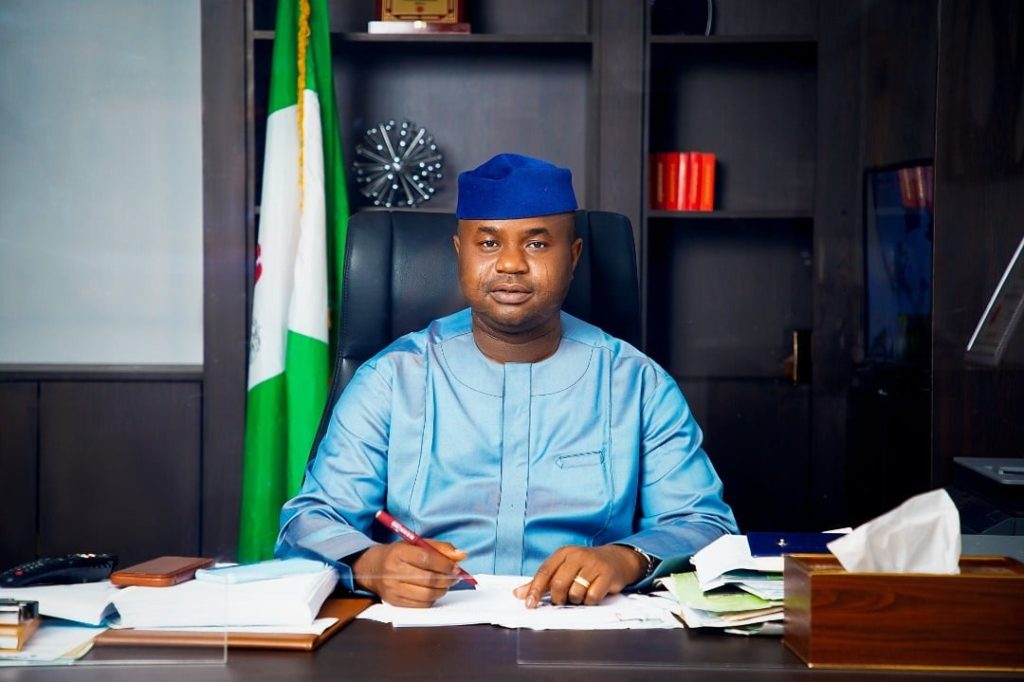The Federal Inland Revenue Service (FIRS) Executive Chairman, Zacch Adedeji, defended the Nigerian government’s borrowing practices, emphasizing that borrowing is a strategic fiscal tool and not a sign of economic weakness. He argued that borrowing is a standard component of any national budget, approved by the National Assembly, and integral to the country’s overall economic strategy. Adedeji’s defense comes in response to criticism levelled against the administration for its borrowing habits, particularly in light of a recent $21.5 billion external loan request by President Bola Tinubu and a previous declaration that Nigeria would no longer need to borrow given its successful revenue targets. Adedeji countered these criticisms by positioning borrowing within the broader economic framework, emphasizing that it complements revenue generation and facilitates long-term investments.
Adedeji drew an analogy to personal finance and business practices, stating that relying solely on current income is unrealistic for individuals, businesses, and nations alike. He pointed out that borrowing, particularly from financial institutions, contributes to the economic ecosystem by providing banks with the interest income they need to operate and pay taxes. He stressed that government borrowing is not used for recurrent expenditures like salaries but for capital projects and investments that yield long-term benefits. These investments, he argued, would be significantly more costly if delayed, further justifying the government’s borrowing strategy. The chairman presented borrowing as a means of spreading the cost of long-term projects across generations, ensuring that future beneficiaries contribute their fair share through taxes. He used the analogy of building a road, explaining that borrowing allows the present generation to build infrastructure that future generations will use and contribute to financially through taxes.
Furthermore, Adedeji introduced what he termed the “Matchy Concept,” a principle emphasizing the importance of matching the lifespan of projects with their funding mechanisms. This concept suggests that projects with long-term benefits should not be funded entirely by the current generation but financed in a way that distributes costs across the generations that benefit from them. He emphasized that borrowing is not simply a means of covering budget deficits but a vital tool for sustainable growth and development, allowing governments to invest in projects that benefit both present and future generations. He likened this principle to the practices of successful corporations, arguing that sustainable growth necessitates strategic borrowing to invest in future opportunities. No country or company, he asserted, can thrive solely on current income without strategically leveraging borrowing for future expansion and development.
Adedeji also addressed critics who, he referred to as “container economists,” accusing them of relying on superficial narratives and social media chatter rather than engaging with the deeper economic logic behind government borrowing. He lamented the propensity of some to focus solely on the act of borrowing without considering its purpose and the long-term economic benefits it can generate. He contrasted this superficial understanding with his own perspective, which sees borrowing as a crucial component of a responsible and forward-thinking economic strategy. He stressed the necessity of posing informed questions and understanding the complexities of economic policy-making rather than simply reacting to sensationalized headlines. He argued that constructive criticism requires a deeper understanding of the economic principles driving government decisions, including the strategic use of borrowing.
In his presentation, Adedeji highlighted the significant increase in federal revenue collection, which reached N3.64 trillion in September 2025, a remarkable 411% increase from N711 billion in May 2023. This surge, he explained, was primarily driven by growth in non-oil revenue, with FIRS’ non-oil collections reaching N1.06 trillion, a considerable increase from N151 billion two years prior. He attributed this substantial growth to various implemented reforms, including the streamlining of tax processes, reduction of the tax burden on small businesses, and rationalization of tax incentives. He further pointed to increases in oil revenue and Value Added Tax (VAT) collections as evidence of the effectiveness of these reforms. The improved revenue performance demonstrates, he argued, the government’s commitment to fiscal responsibility and sound economic management.
Adedeji further outlined ongoing and future initiatives aimed at further enhancing revenue mobilization and broadening the tax base. These include the implementation of a new fiscal policy framework, revised excise duties rules, and the introduction of electronic invoicing systems. These measures, he explained, will deepen tax compliance and ensure that more businesses and individuals contribute their fair share to the national treasury. Looking ahead, he emphasized the government’s plans to harmonize subnational levies, introduce a presumptive tax regime for hard-to-tax groups, and reduce corporate tax rates in alignment with broader spending and constitutional reforms. These reforms, he contended, will create a more efficient and equitable tax system, further boosting revenue collection and supporting sustainable economic growth.














